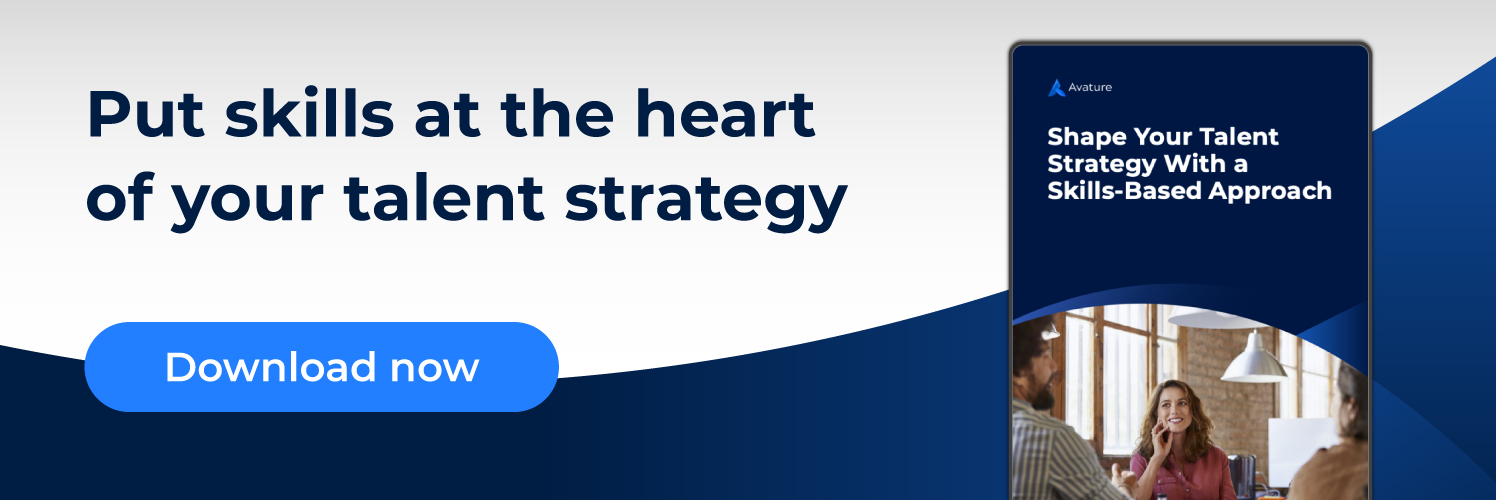Skills are the new currency in HR. Long gone are the days when organizations could solely base their HR decision-making on cost, headcount and role titles. What are the forces of change driving the skills agenda and how can a more joined-up approach to HR help organizations upskill and reskill the workforce both rapidly and at scale?
In this blog, Sven Elbert, Senior Analyst at Fosway Group, will explore:
- Why skills are a driving force for organizational transformation and why HR teams need to rethink their skills agenda and transform the workforce.
- The strategic importance of skills as an enabler of organizational transformation.
- How the new skills agenda affects all areas of talent, from recruiting and onboarding to learning and performance.
Why Skills Are a Driving Force for Organizational Transformation
Currently, organizational transformation is being driven by trends including digitization, automation and decarbonization, and for 65 percent of organizations, this leads to significant skills gaps. Stories of companies such as Kodak remind us of how digital innovation disrupts businesses and how important it is for organizations to have leaders with vision, passion and determination to be successful. These leaders also need the right skills in their workforce to turn innovative ideas into reality.

Where digitization is often about challenging the status quo and doing things more effectively, the disruptive forces of automation aim to do tasks more efficiently. Automation and robotics have already transformed many core value-creating processes for low-skill, low-wage work. But now, Artificial Intelligence is transforming knowledge work too, with organizations aiming to leave significant amounts of decision-making to artificial rather than human intelligence. As a result, humans need to build new skills to stay employed, and employers are increasingly looking to develop these skills, as buying or borrowing them in tight labor markets is a significant challenge.
Meanwhile, the most significant transformation since the first industrial revolution, decarbonization, is only just gaining momentum. As new government policies to fight climate change put substantial external pressure on organizations, entire industries need to rethink their skills agenda and how to transform their workforce.
A modern transformation and agility agenda is centered around skills. They are at the heart of every issue – whether that is reskilling and upskilling to tackle environmental challenges, leveraging knowledge workers to innovate (rather than administrate), or improving productivity by distributing work via talent marketplaces and matching suitable candidates to gigs, projects and roles.
The Strategic Importance of Skills to Organizations
To execute against the challenges listed above, HR needs to understand the skills available now clearly and those required in the future. Otherwise, identifying current and future gaps and a strategy to close them is mere guesswork, intuition or luck. A lack of skills often prevents organizations from taking advantage of new market opportunities, innovating new solutions and services and adapting to change. Skills gaps inhibit progress and will ultimately put the organization’s survival at risk.
It is easy to assume that organizations would proactively manage skills to address the problem. But research shows less than half (45 percent) think they do a good job of understanding the skills profile of their organization. In a recent study, one in five organizations admits to having no skills agenda, and almost 90 percent said the immaturity of their approach to supporting skills makes it harder to retain their best people.
Why Skills Affect All Areas of Talent and HR

If you don’t know what skills you have or where they sit, how do you know what to invest in or which people you need? Knowing who has what skills is a prerequisite for helping match them to opportunities or identifying strategic skills gaps.
Knowing what skills are called and having agreed definitions, and getting a fair rating for an employee, is often seen as complicated and laborious to do. This may account for why 60 percent of organizations do not have a consistent approach to skills across their HR silos.
The challenge here is to track the types of work tasks employees are undertaking and how they are applying skills in the workplace. By doing this, employers start to understand who has what skills.
However, tracking these tasks using disparate and siloed HR systems will not provide the insights needed to scale skills development. That’s where next-gen HR solutions that use machine learning come into play. These systems provide a consistent approach to skills development across the entire organization, enabling employers to identify which skills are being developed and provide personalized learning resources to individuals based on those skills and related work opportunities.

Just how critical this consistency is becomes clear when looking at how influential skills are to talent and people success. Whether it’s onboarding, learning, employability, global mobility, proactive inclusion, agile talent allocation, flexible resourcing, accelerating projects and building an understanding of the organization’s resilience and readiness for change or its ability to adapt – the way we connect skills across HR matters.
That’s why HR needs a joined-up approach; integrated solutions provide skills visibility across HR silos. Suppose you think about HR and its solutions as bridges between people, their skills, personal development and work. In that case, it’s easy to see how any breaks in the bridge make the employee’s journey and experience harder. Without connecting skills and skills development to new opportunities and learning, organizations make an individual’s development harder. A transformative skills strategy must ensure that skills and opportunities connect seamlessly and consistently across the organization.
If you are looking to build your talent programs around skills and want to find out more, our free playbook is a great resource.



